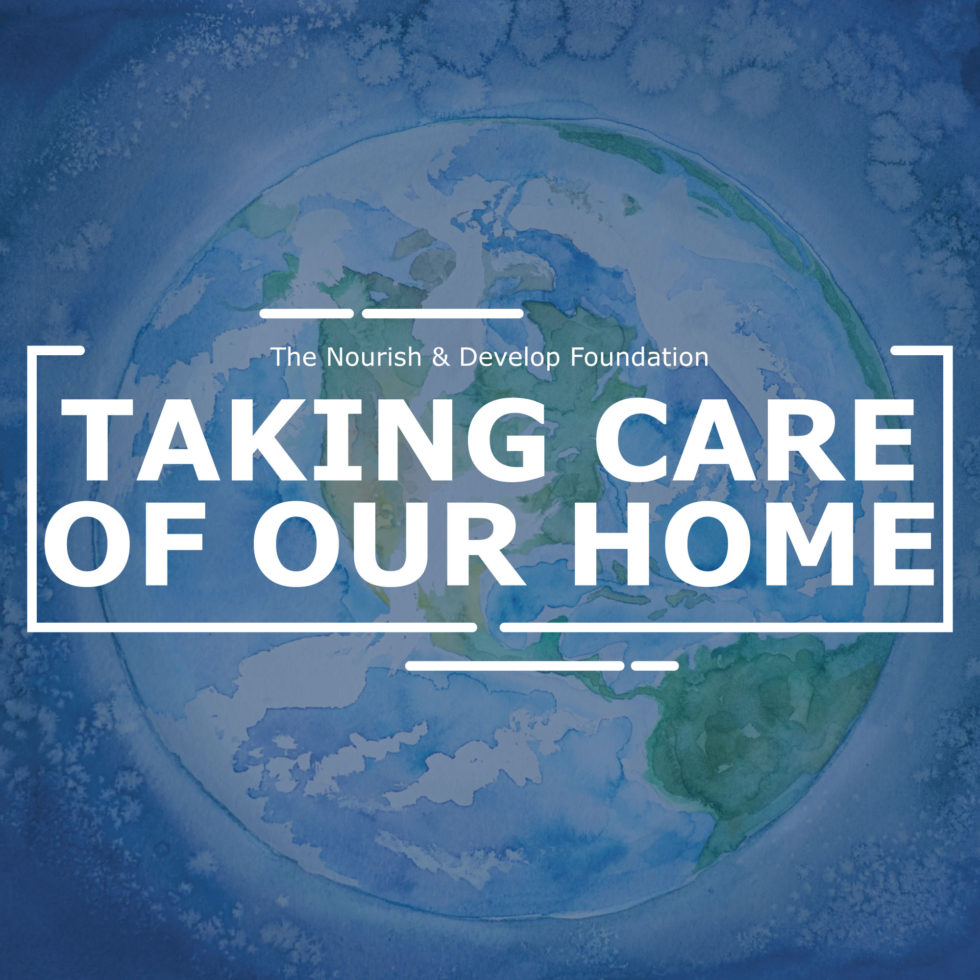Unless you are currently living on the I.S.S., Earth is your home…
and we all live in it together. Like every home, it needs maintenance to keep in tip-top shape. That’s why we celebrate Earth Day every year on April 22, to make sure we’re all doing our part to take care of our Earth, our home.
Earth Day is widely considered as the anniversary of the modern environmental movement. People all around the globe demonstrate their support for environmental protection by participating in and organizing events that spread awareness, and advocating for change. The theme of 2021 is Restoring Our Earth, which focuses on preventing the upcoming climate change and environmental destruction with five featured programs such as ‘The Great Global CleanUp’ and ‘Food and Environment’. Today we want to address the significance of caring for our environment and offer suggestions on how you can do your part in making a difference for a better future!
What does this have to do with our mental health?
More than you may think! As humans, we are linked to our natural environment and have an innate need to connect with plants and animals. Several studies have shown that people respond positively to green spaces and gain psychological benefits from spending time in nature including increased alertness, decreased stress, and improved cognitive functioning and creativity. Therefore, protecting our natural resources is in our best interest.
Social and environmental determinants of health broadly refer to the social and physical conditions in which people live and work. Factors like food security, education, and access to housing greatly influence our health and mental health. From an environmental perspective, exposure to air pollution is tied to an increased risk for mental illness in both children and adults compared to less polluted areas.
So what actions can we take to help restore our Earth?
Sustainable choices:
Despite popular belief, millenials are not to blame for our single-use society. Disposable, single use items became commercially available in the 1970s and 1980s due to their cost and ease. Since then, every single piece of plastic ever made still exists. That is why it is important to be mindful of the items we use and why we use them.
For example, if you are only going to use something a handful of times, it might not be worth owning. If you need a tool, ask your neighbours to lend it to you or contact your local library for books and movies.
Before making a decision about an item, review the following list to check whether an eco-friendly option is available. Recognizing the impact we have on our environment can give us a sense of purpose and teach us to be grateful for what we have as well as for what Mother Earth provides us.
Know your power as a consumer: we control the demand of goods.
For instance, if enough people start refusing single use items like plastic straws, businesses are more likely to explore sustainable alternatives to satisfy their customers.
Similar to reusing, repurposing can bring new life to a used item!
Some examples include turning an old t shirt into a tote bag, keeping a candle container for storage, or transforming old CDs into coffee table coasters. It will always be unique!
Less is more! Be aware of how many items you are bringing into your life and home. Investting in higher quality items will save you money in the long run.
Consider: you can pay between 5 to 10 cents each for plastic bags or you could spend $2 once for a reusable bag to use forever.
We live in a world of convenience which can make it easier to replace an item rather than taking the time to fix it.
Try sewing holes in your clothing or fixing a broken piece of your jewelry to prevent waste. It teaches us skills and restores our beloved item.
Find creative ways to reuse items. Save things like gift wrap, glass jars, and egg cartons to multiply their uses.
This works great for arts and crafts and Do-It-Yourself projects. Extending the life of ‘single use’ items keeps them out of landfills and saves money!
If the item needs to be recycled, ensure you are following the appropriate process. Refer to your local Waste Management Services to learn about acceptable materials. TerraCycle recycles the “non-recyclable” and works with partners to collect and recycle almost any form of waste.
Additional tips for helping the environment and your mental health
(at the same time):
People aren’t born with green thumbs, it takes time and practice, but the benefits are well worth it.
Plants produce oxygen and give us something to care for. Adding plants to an indoor or outdoor space allows us to reap the benefits of connecting with nature. Gardening is a hobby that can boost our mood and is an opportunity to grow our own food, increase biodiversity, and attract pollinators.
Contact us to learn more about our Community Garden and Seed Library!
When we shop close to where we live, we are shortening the distance items would have to travel, decreasing our carbon footprint.
We are also supporting local business owners instead of funding giant corporations. Our dollar can then stretch further by re-entering our community. Buying local supports schools, sports teams, community events, green spaces, and sustains/creates local employment.
Check out Downtowns of Durham to explore featured businesses.
Unplug your appliances and devices when you are not using them and aim to usee them in off-peak hours. Compost your food scraps, be conservative with water use, and replace air filters in air conditioners and heaters.
Depending on your household income, Greensaver will conduct a free home assessment to replace inefficient appliances at no cost and provide an energy saving kit.
It’s also been proven that energy efficiency measures can support mental health by creating healthy indoor living environments.
Incorporating plant-based foods into your diet fights against climate change caused by industrial livestock production. But this doesn’t mean that you need to cut meat out altogether if you don’t want to!
Try designating a day of the week to eat vegetarian, for your own health as well as the planet’s. You can also opt to purchase meats from smaller, local farms who raise their animals ethically and sustainably. These farms often have seasonal markets as well, so you can buy local produce that helps support our rich agricultural industry.
We live fast paced society and can feel pressure to keep up with the latest trends. But fast fashion comes at a cost. While it is up to businesses to improve their practices, we have the power to demand for change.
Higher quality items are less susceptible to wear and tear and last longer. Try to aim for classic pieces that stand the test of time, like blue jeans and neutrals. Shopping second hand at thrift or consignment stores for these kinds of items is cost effective and keeps textiles out of our landfills. You can also borrow or swap clothes with your friends to switch it up!
Many of our personal care and household products contain harsh chemicals and harmful toxins. These are not only bad for our health in the long run, but for our water supply and environment.
Sometimes it is unavoidable (especially now) to use harsh cleaning supplies, but when you can, try to make your own. Cleansers, cleaners, and fragrances can be made with natural items like essential oils, vinegar, and castile soap or support brands that are transparent about their products and use ingredients that are environmentally safe.
Do your research
Ignorance isn’t bliss, it’s ignorance. If you educate yourself, you can make an informed decision and expand your knowledge.
Probably the most important thing to understand is that ‘fixing’ the climate crisis is not your responsibility.
That doesn’t mean that you can’t do your part to change your little corner of the world. Adopting sustainable environmental practices in your own life makes a healthier planet and a healthier YOU.
Interested in learning more about Earth Day? Check out this Facebook live on April 22!
“At Be 8nfinite, in collaboration with @heartfulness.toronto @heartfulness_canada @heartfulness @live4todayamit @newearthestate, we are going to celebrate #earthday to raise environmental consciousness and to unite, in caring for our planet.”
See the resource section below to learn more. ↓
Resources:
https://www.purdueglobal.edu/blog/student-life/45-sustainability-resources/
https://www.thinkdirtyapp.com/verified-brands/
Sources:
https://www.thenba.ca/disability-blog/ways-celebrating-earth-day-can-improve-health/
https://choicespsychotherapy.net/earth-day-mental-health/
https://www.frontiersin.org/articles/10.3389/fpubh.2016.00260/full
https://www.healio.com/news/psychiatry/20200422/earth-day-2020-mental-health-and-the-natural-world



